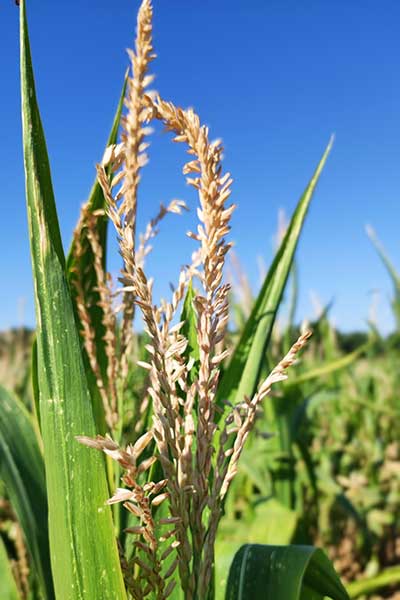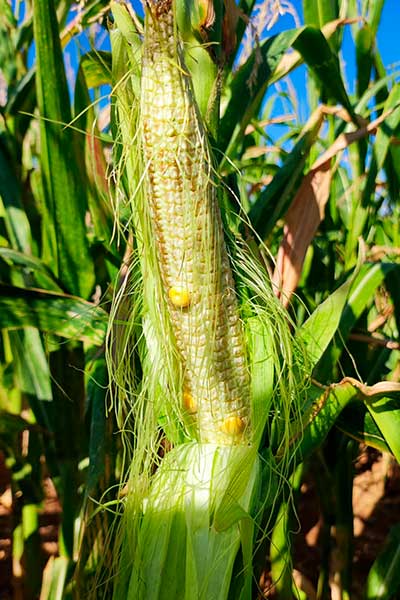New European project to develop innovative and sustainable strategies to create climate-resilient cereals
We are pleased to announce the signing of the European project “BOOSTER”, funded by the European Commission within the framework of the Horizon Europe programme.
BOOSTER aims to improve drought tolerance in both maize and teff, while simultaneously exploring the potential for transferring species-specific drought responsive features. By exploiting natural genetic variations to achieve drought-tolerant genotypes, and by developing ‘Plant Biostimulants’ derived from living organisms, BOOSTER will harness the natural resources available to develop new varieties of drought-tolerant agricultural crops. The €4.9 million project is funded by the European Commission’s Horizon Europe framework programme and will have a 4-year duration.
Two synergistic strategies will be implemented to achieve this goal. Firstly, a new approach will identify genomic variants in regulatory regions functionally associated with drought tolerance. Novel regulatory elements underlying resilience will inform efficient breeding efforts to create new drought-tolerant cereal varieties. Secondly, novel ‘Molecular Priming’ technologies from seaweed and microbial-based biostimulants will be developed by BioAtlantis Ltd. (Ireland) and Aphea.Bio (Belgium) respectively, as an eco-friendly approach for improving drought resilience. The two strategies will be tested in two cereals with different degrees of responsiveness to drought: European maize and Ethiopian teff – a cereal with a high genetic similarity to the desiccation tolerant sister species Eragrostis nindensis.
The BOOSTER consortium comprises a highly qualified team represented by European and international (USA, South Africa, Ethiopia) academics and industry to collectively ensure that the expected impacts are achieved in the near future. Project partners include Consiglio per la Ricerca in agricoltura e l’analisi dell’economia agraria (project coordinator; Italy), Heinrich Heine University Düsseldorf (Germany), Vlaams Instituut voor Biotechnologie (Belgium), Ethiopian Institute of Agricultural Research (Ethiopia), University of Cape Town (South Africa), Center of Plant Systems Biology and Biotechnology (Bulgaria), BioAtlantis Limited (Ireland) Aphea.Bio (Belgium), EU CORE Consulting S.r.l. (Italy) and IDCONSORTIUM SL (Spain). Booster also includes the following associated partners: Universitaet Bern (Switzerland), Michigan State University (USA), KWS SAAT SE & Co KGaA (Germany) and Quantis (Switzerland).


